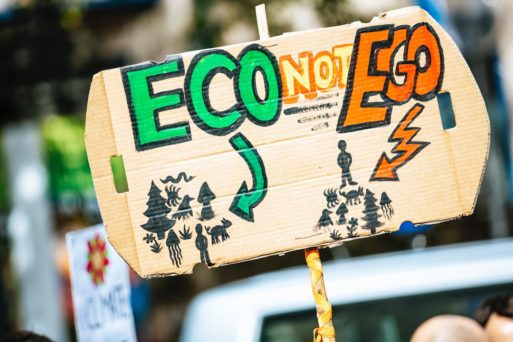
Advocates to legalize human composting say it will help prevent climate change.
Credit: Markus Spiske
California Gov. Gavin Newsom has signed a law that will make human composting available in California by 2027. In directing state officials to establish regulations for the process, known as natural organic reduction, California follows four other U.S. states that have legalized human composting: Washington, Colorado, Oregon and Vermont.
Human composting involves placing bodies in a vessel and covering them with wood chips, alfalfa and straw for 30 days as microbes break the body down into soil. After the soil is cured, it can be placed in gardens or on conservation lands to provide nutrients to the earth. Recompose, a Seattle-based funeral home that specializes in the process, estimates that an individual human body produces about one cubic yard of compost.
Legalizing Human Composting Can Limit Climate Change
Recompose CEO Katrina Spade and other advocates of legalizing human composting say that it’s more environmentally friendly than cremation or burial. Cremations — currently the most popular method of body disposal in the U.S. — release an estimated 360,000 metric tons of CO2 emissions in the country every year, according to estimates from Matthews Environmental Solutions published in National Geographic. Meanwhile, burials leak toxic chemicals such as formaldehyde and methanol into the soil, while using an excess of space and resources.

An individual creates roughly one cubic yard of compost.
“With climate change and sea-level rise as very real threats to our environment, this is an alternative method of final disposition that won’t contribute emissions into our atmosphere,” CA Assembly member Cristina Garcia, who drafted the bill, said in a press release. Spade, who has been offering human composting services since 2020 at a cost of $7,000, added that while “it’s not easy to think about after-death choices … this process would provide Californians an option that offers significant savings in carbon emissions and land usage over conventional burial or cremation.”
In Colorado, the remains of the first person to undergo human composting were donated to the state’s first dedicated green cemetery, the Colorado Burial Preserve. The fledgling industry is still limited to a few key providers, including The Natural Funeral in Colorado and Recompose in Washington.
Providers in California may now soon join their ranks. However, not everyone is pleased with the proposal. The California Catholic Conference opposed the measure, suggesting that it would create emotional distance and a loss of reverence. Executive Director Kathleen Domingo told the Catholic News Agency that legalizing human composting would create an “unfortunate spiritual, emotional, and psychological distancing from the deceased” and reduce the human body to “simply a disposable commodity.”

 California Legalizes Human Composting
California Legalizes Human Composting


 “Songbird” by Fleetwood Mac
“Songbird” by Fleetwood Mac

 How to Comfort A Dying Loved One
How to Comfort A Dying Loved One














